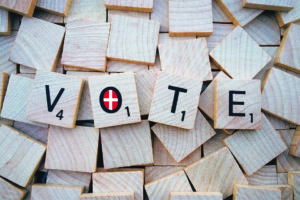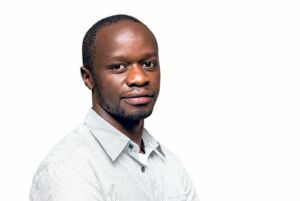Opinion
Straight Up: Falling on the vicious double edged sword of democracy
Zach Khadudu
This article is more than 8 years old.

Venstre with a headstart? Well it is the only choice whose party letter matches its name (photo: Pixabay)
This autumn, I was a part of an international group of artists at the ACT theatre company that produced Henrik Ibsen’s play ‘An Enemy of the People’.
It is remarkable how Ibsen’s classic, written at the close of the 19th century, reverberates in our time. Ahead of Denmark’s local elections this month, it is an opportune time to recalibrate and revisit what Ibsen called “the age old lie that the majority is always right”. That’s right. Democracy, now more than ever, has become a vicious double-edged sword.
Start from the beginning
Ibsen’s ‘An Enemy of The People’ is heralded by zealots and critics alike as being futuristic. In it he questions the core of democracy. Is the majority always right? What makes the majority right? What if the majority is wrong?
In the age of Donald Trump’s America, the reinvigorated alt-right movements and the political shifts across Europe, one cannot help but ask of democracy: by and for who? “By the people for the people,” Lincoln would say. But then who are ‘the people’ in our context? The immigrants? The illegals? Bottle collectors? Refugees? Muslims? Are they part of ‘the people’?
A year of great change
Over the last year we have seen interesting democratic processes across the world. In America, an openly fascist, racist chauvinist was elected president. In Germany, right-wing party Alternative for Germany gained ground and secured representation in the Bundestag parliament. In France, the youthful Emmanuel Macron, seen as the hope of a crumbling EU, was elected.
Further afield in Africa, pseudo democratic processes were rampant. Rwanda’s opposition-bashing, media-threatening Paul Kagame won a one-man race with a landslide 98.63 percent (hahaha). The Supreme Court in my native Kenya quashed the presidential election result and ordered a new one, in which the incumbent Uhuru Kenyatta (again running against himself!) took 98 percent (LOL). In all these, the ‘red threat’ is a growing divide of extremes and otherings: leftists and rightists, ‘we’ and ‘them’, liberals, conservatives and whatever else there is.
Mockacracy of democracy
In ‘The Rise of Illiberal Democracy’, journalist Fareed Zachariah ponders the dilemma expressed by American diplomat Richard Holbrooke during the 1996 Bosnia and Herzegovina elections.
“Suppose the election was declared free and fair,” Holbrooke noted, and those elected are “racists, fascists, separatists, who are publicly opposed to [peace and reintegration]. That is the dilemma.”
This observation may have been made in the context of the bloody civil wars that preceded that election, but it holds true to many other elections in stable democracies. As witnessed in the last general elections here in Denmark, the racist, islamophobia, nationalistic voices are loud and clear, elected in free and fair elections, in the country of NFS Grundtvig, Soren Kierkegaard, HC Andersen and Niels Bohr.
Despite the screams and kicks of the self-proclaimed liberals and radicals, this government has steadily tightened immigration, successfully locked out thousands of asylum-seekers and is now readying its tentacles to cut the SU student support and the social welfare Denmark holds so dear.
This government is an equal opportunity oppressor, not just of foreigners, but also the poor, the homeless and the sick.
Nevertheless, vote!
As Winston Churchill said: “It has been said that democracy is the worst form of government except for all those other forms that have been tried from time to time.”
So for everyone eligible, be a gentle citizen. Do your duty. Go and vote. Otherwise move to Narnia, Mordor or Thomas More’s Utopia.

About
Zach Khadudu
Zach Khadudu is a Kenyan by birth and a journalist by choice. He is a commentator and an activist with a passion for refugee and human rights. He may share a heritage with a certain US president, but his heart lies elsewhere – in the written and spoken word.










































